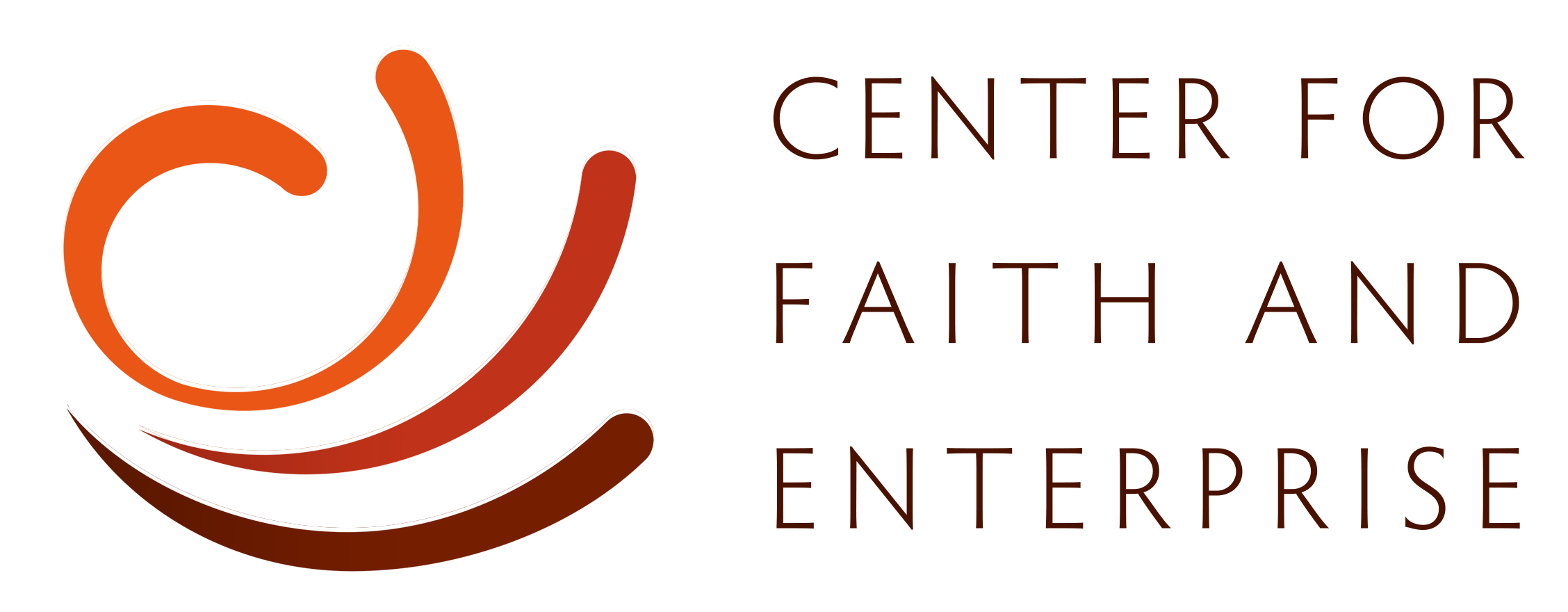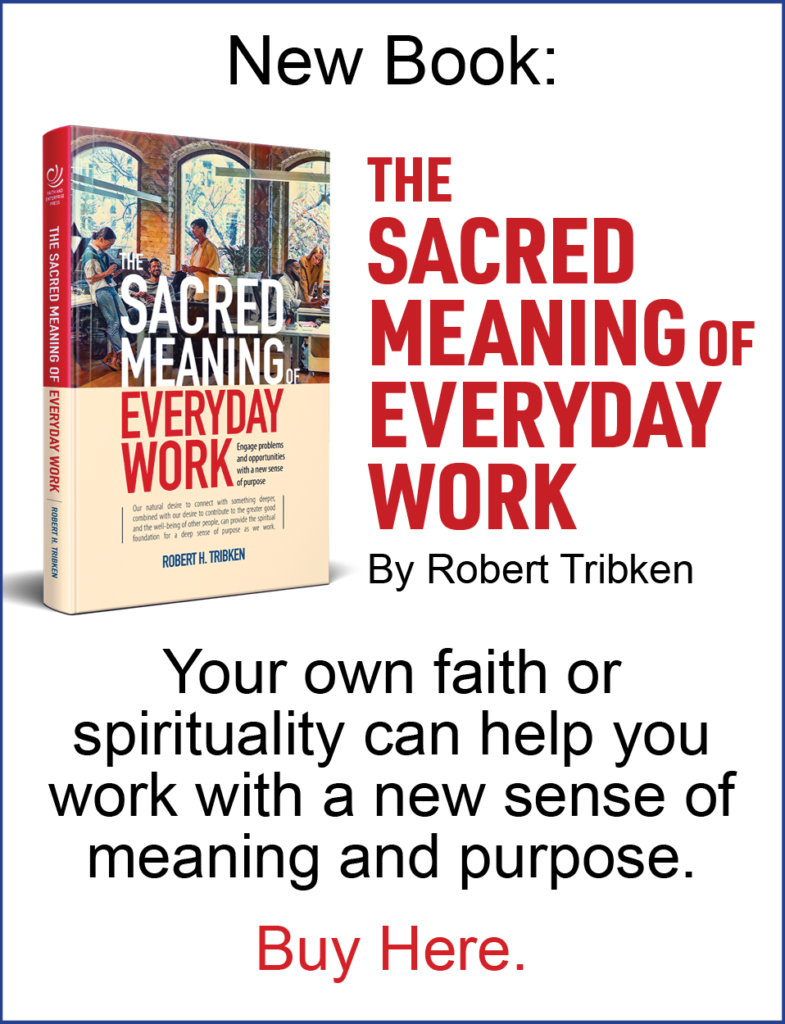Transcript of Podcast January 26, 2017
Work Related Stress Part 1, Can Spirituality Help?
We all know that work-related stress is a big problem in our work lives. It’s painful, it’s dysfunctional, and it’s hard to escape when we are in the midst of it. But there are some things we can do.
Of course, stress is a big subject, and we certainly cannot cover very much of it in one podcast episode. We will, of course, be offering more material in the future. But today I think we can make a good start.
I’ll be relying heavily on the work of Richard S. Lazarus, a psychologist and researcher who devoted most of his life to studying stress and its related emotions. By the way, if you’re interested in more information on his work, I recommend his book, “Stress and Emotion.” It was written near the end of his life and was intended to pull together what he’d learned about stress over the years.
Lazarus took a relational approach to stress. He believed that stress originates in an unsatisfactory relationship between the environment and the individual — as evaluated and appraised by the individual. This last element, appraisal, is critical. The way individuals appraise the situation is a critical element. It’s part of the reason why different individuals respond differently to essentially the same situation.
It’s also a big part of the reason why individuals respond differently at different times to the same situation. Let me give you an example. Let’s say that you’re working at your desk and it’s 10:00 AM on a weekday morning. Things haven’t been going especially well for your company recently, and somebody comes to you with a message asking you to meet with your boss and the director of Human Resources in the conference room. And, they want you there right away.
Before you are able to even think about the situation, you notice a tightening in your chest,queasiness in your stomach, and a sense of anxiety developing. It may be that your emotions are the first indication you have of what your response to the situation is. In this case, it’s clear your subconscious has been processing the request as a threat faster than you have been able to think about it.
For Lazarus, there are several aspects of this appraisal process, starting with appraising the nature of the situation itself. But the aspect I would most like to focus on today has to do with whether or not we believe we have the resources necessary to deal with the situation. And this is very important. When confronted with a stressful situation we ask ourselves (and this can be conscious or subconscious) this question: Do I have the resources necessary to deal with this?
The answer to this question is the key to how stressful the situation becomes. In Lazarus’ framework, this question of whether we believe we have the resources necessary to deal with the situation can mean the difference between whether we see it as a threat or we see it as a challenge. And the difference between these two appraisals can be huge.
Let me define these terms a little bit more clearly. A threat is something that may very well result in a loss of something important. It could be something tangible such as money or maybe even our job, or less tangible such as our self-esteem, our sense of integrity, or maybe our status within the organization. Not only do we feel threatened with a loss, but we also feel as though we do not have the resources necessary to deal with the situation.
A challenge, on the other hand, represents something that needs to be fixed or improved but is well within our grasp to manage. In this case, we do believe we have the resources we need. Here is why the distinction is so important. If we see a situation as a threat, we’re likely to experience painful negative emotions such as anxiety, fear, or maybe even anger. We’re also likely to be less effective, especially if the intensity of the emotions is relatively high.
Negative experiences and emotions associated with threats can grind us down — grind us down until we burn out. Seeing the situation as a challenge, however, can be quite different. In this case, we see the unsatisfactory situation as something we can fix or improve. The experience of being challenged can be energizing, it can sharpen our thinking, and it can help us become more alert.
It’s true that we might rather be doing something else. Nevertheless, the experience of responding to a challenge can call forth positive emotions such as a sense of accomplishment or a sense of purpose. If we see this situation as a challenge rather than a threat, then it can be a source of personal growth and development instead of an experience that grinds us down.It can help us develop our skills and help us develop a sense of competence and optimism. Rather than weakening us, responding to a situation as a challenge can strengthen us.
Think about what this means. The difference between seeing a situation as a challenge instead of a threat can make all the difference in the world. And it’s based largely on recognizing that we have the resources needed to deal with the situation.
Of course, some situations really are threats, serious threats, and they need to be treated as such. But most of the time the stresses we face, especially the everyday hassles that grind us down, could be handled more positively as challenges if we could recognize we have the resources necessary to deal with them.
Let’s talk about resources. Some of these can be more or less tangible, such as time, money, equipment, or staff support. But they can also be skills, or personal characteristics such as optimism, a sense of resilience, or maybe an ability to stay focused. These personal characteristics are important resources — or you might say personal strengths — that can help us deal with these difficult situations. They can lead us to appraise a situation as a challenge instead of a threat. When we have an optimistic frame of mind, for example, we’re more likely to see difficult situations as challenges.
I believe there is a religious connection here. As far as I know, Lazarus did not talk much, if at all, about religion. Nevertheless, I think there is a connection. When we talk about religion, we should recognize that a religious or the spiritual drive has a lot to do with our desire for transformation. We want to be transformed by our faith and our spirituality. We want to be better people. This can involve the development of particular strengths such as compassion, humility, courage, patience, and hope. These strengths can be resources — resources that help us deal with difficult situations.
We can clearly see this religious connection in the Bible. There are plenty of statements along the lines of “my strength is in the Lord,” “The Spirit of God is with me,” “God will show me the way.” Each of these speaks of the strength and wisdom we receive from our faith and our spirituality, or at least, that we hope to receive from our faith and our spirituality.
Some of the more powerful examples of transformation in the Bible seem to be driven by the experience of divine presence, an experience of a connection with God. This was certainly true for the case of the apostle Paul.
You might remember that Paul was able to endure what must have been extraordinary stress. He was imprisoned multiple times, he was beaten, he was tortured, he was stoned, and he almost drowned in a shipwreck. His message was probably rejected far more often than it was accepted. Near the end of his life, Paul was far from home and sitting in a Roman prison, which of course was not a comfortable or pleasant place to be. Paul was facing imminent death by execution, but he was able to write these words to his friend Timothy:
“… for God did not give us a spirit of cowardice, but rather a spirit of power, and of love, and of self discipline.” (2 Timothy 1:7)
Let’s read that again.
“… for God did not give us a spirit of cowardice, but rather a spirit of power, and of love, and of self discipline.”
Paul had clearly had been transformed, and this gave him the personal strength — in Lazarus’s terms, the resources –necessary to see things through.
Turning to our own situation, our faith and our spirituality can help us face these difficult situations in a number of ways. Spiritual practices such as prayer and meditation, and others, can help us stay calm and focused. Turning our attention towards God can help us develop a sense of connection and purpose. Religious entities like churches and small groups can provide social support and a place to reflect on our situations.
Scripture and theology can also help us find meaning in difficult situations, and help us develop a broader sense of perspective. We have to recognize that individuals are very different, and they are especially different when it comes to their faith and their spirituality. It’s very difficult to generalize. Different people encounter the sacred very differently. What’s important is that we can each access our faith and our spirituality in such a way that they enable us to stay grounded, and identify and develop our personal strengths and our personal resources — the things we need to deal with difficult situations.
The more we develop the strengths necessary to see unsatisfactory situations as challenges with positive potential, rather than as threats, the more effective we will be, and the more satisfied with our work. We’ll also be more likely to be successful, and perhaps — most importantly — we’ll be more likely to have a positive impact on the world through our work and through our working relationships.

